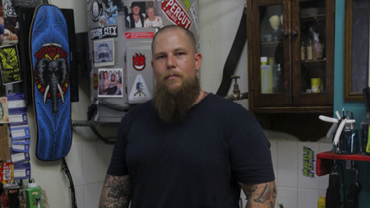Suicide is a major public health issue in Australia and more than five men die by suicide each day. This is almost double the number who die in road accidents and means that Australian men are three times more likely to die by suicide than women.
The research report found the four elements common among suicidal men are:
• Stoic beliefs about masculinity
• Depressed or disrupted mood
• The presence of things that are stressful
• A tendency to isolate themselves socially and use ways of coping that avoid the relevant issues and prolong or worsen them
The research was based on face-to-face interviews and online surveys with over 200 men across Australia who had recently attempted suicide, and 165 friends and families of men who had recently attempted suicide.
Almost 90% of the men said support from someone they trust and respect was important in interrupting a suicide attempt, making it the most highly-rated factor. Having someone listen with an open mind, rather than simply saying that everything will be ok, was second with about 80%.
The research identified things family members and friends can do to stop at-risk men attempting suicide, from ‘male bonding’ that prevents a downward spiral happening, to not leaving a man’s side when he is ‘acutely suicidal’.
Movember Foundation’s Asia Pacific Director Jeremy Macvean said: “Other important findings are that men want their spiralling mood to be noticed, but may reject offers of support from family and friends, who report the importance of persisting.
“If you’re worried about a man in your life, I would urge you to reach out to them and then keep reaching out to them until you’re satisfied they’re ok. The fact is, they may just say they’re ok because they don’t want to be seen as weak. Your intervention could save their life.”
Black Dog Director Professor Helen Christensen said: “The results of this research clearly demonstrate that we need to provide a diverse set of solutions to ensure we capture all people experiencing poor mental health. Building on health promotion programs such as beyondblue’s Man Therapy campaign and Movember, we now need to develop and deliver clinical solutions that are accessible to Australian men of all ages and backgrounds.”







.png)

